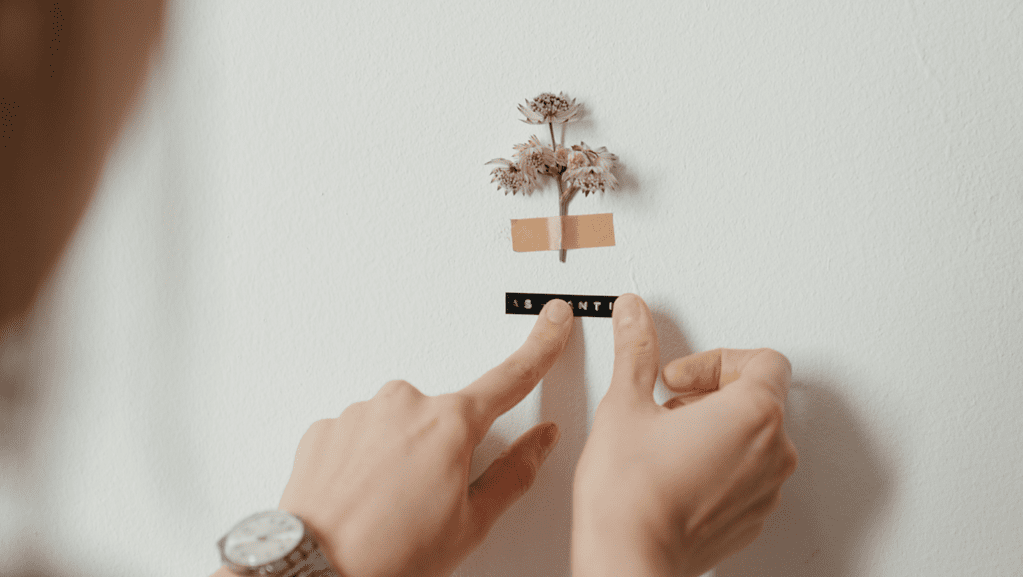
This post may contain affiliate links. For more information, read the full disclosure here.
Loyalty is a virtue we seek in every person we associate with. Loyalty means being faithful, standing by the other person, and committing to the values of the relationship. A loyal friend, lover, associate, etc., is a person you can trust and lean on.
However, looking for loyalty in others is not more important than being loyal to yourself. I have the motto: “Always treat yourself the way you want others to treat you.”
Self-loyalty means self-support, self-acceptance, and self-love. You can’t expect others to provide you with these if you don’t wholeheartedly offer them to yourself.
But how can I be loyal to myself? Read on to find out 5 tips to learn how to be loyal to yourself.
What Loyalty Means
Loyalty generally refers to a strong sense of faithfulness, dedication, and commitment towards someone or something. It is a quality that implies steadfast and unwavering support, trust, and allegiance.
At its core, loyalty involves being reliable, dependable, and devoted to a person, group, organization, or cause. A virtue often arises from a sense of deep respect, admiration, or love.
Loyalty can be demonstrated through consistent actions, words, and choices that prioritize the well-being and interests of the object of loyalty.
Loyalty encompasses various aspects, including:
- Trust: Loyalty is built on trust, as it requires a belief in the reliability and honesty of the person or entity to be loyal.
- Commitment: Loyalty involves standing by someone or something, even in challenging or difficult situations.
- Support: Loyalty entails providing support, encouragement, and assistance to the person or cause to be loyal to, especially during times of adversity.
- Fidelity: Loyalty often involves staying faithful and true regarding personal relationships and moral obligations.
- Sacrifice: Loyalty may sometimes require making personal sacrifices or putting aside individual interests for the sake of the greater good or the object of loyalty.
- Consistency: Loyalty is demonstrated through consistent actions and behaviors that align with the values, goals, or principles of the person or entity being loyal to.
However, it’s important to note that loyalty is not absolute and can vary in intensity and scope depending on the situation, context, and personal values.
Loyalty should be balanced with critical thinking, ethical considerations, and self-care, as blind loyalty can be detrimental if it leads to supporting harmful actions or compromising one’s own well-being.
How To Be Loyal To Yourself

Stay True To Your Beliefs
A belief system is a set of values that defines how we live. Be it about politics, religion, human relationships, lifestyle, etc. Our values represent our special viewpoint about all things life.
A big part of being loyal to yourself is staying faithful to your core values. This means living according to the things you support passionately and strongly care for.
How to do that:
- Find your core values
This is a process that happens naturally while growing and evolving. However, you may not have sorted out exactly what your core values are.
To do that, you may ask yourself what people you admire stand for. You can wonder how several social circumstances and life experiences make you feel. Ask yourself what you find most important and what you value greater than money.
- Make life decisions according to your core values
Not living according to your belief system can generate feelings of guilt. Your beliefs, priorities, and principles should guide your life decisions. By doing so, you will live an authentic and meaningful life that reflects your true identity.
- Stand up for what you believe in
A big part of standing up for what you believe in disagrees with people. That should not prevent you from voicing your opinion. Being loyal to yourself means staying true to yourself, regardless of what others think or say.
Don’t Sell Yourself Too Cheap
Compromise is the key to healthy relationships. However, always being the one to step back is equally damaging to always having your way.
Being loyal to yourself sometimes means claiming to have your needs met. From asking for the raise, you deserve to deciding the place for your next night out.
How to do that:
- Embrace your value as a person
Sometimes, we avoid asserting our opinion fearing we are not worthy enough. However, you are worthy simply because you are. Your needs and desires are equally important to anyone else’s.
- Reject people-pleasing mentality
Making pleasing others your priority is the opposite of being loyal to yourself. Accept that you cannot be everyone’s cup of tea and instead focus on pursuing your dreams and priorities.
- Find out what you want
Navigating your desires exempt from what others want or expect from you can prove challenging. However, it is a big part of being loyal to yourself.
It requires deep introspection and self-knowledge. Make sure that whatever you come up with is aligned with your values, purposes, and well-being.
Embrace Your Personal Identity
Being loyal to yourself can mean showing up as your honest self. Therefore, self-loyalty requires self-knowledge. You should be aware of both the good and the “unattractive” parts that make up your identity.
How to do that:
- Define what makes you YOU
A great way to do that is to start a journal about it. You can use prompts like the following. How would I describe myself? What are my special characteristics?
What do I like about myself? Is there anything I would like to improve? What am I insecure about? You can also ask people close to you to provide the perspective of an external observer.
- Love the imperfections
We all have parts of ourselves we feel insecure about. Whether it is something about your appearance or a trait of the inner world. Accepting yourself as you are is a big part of being loyal to yourself.
- Show up as your authentic self
Have the courage to embody the most honest version of yourself. Living life as yourself is the best way to live. Pretending to be someone you are not to be accepted or liked can feel like betraying yourself.

Don’t Slow Yourself Down
Sometimes, we tend to put blocks in our path to success even when there are no real obstacles. This self-sabotage can take several forms, like procrastinating, self-doubting, not taking risks, or staying stagnant. When you put faith in your strengths, you practice self-loyalty.
How to do that:
- Shut the voice of logic up
Become a dreamer like you used to be as a child. That was before you began rationalizing and putting everything into perspective.
Put your heart and creativity into expressing your most inspired and ambitious dreams. Pile them up, write them down, and keep them where you can see them.
- Do not allow your negative talk to prevail
Do not allow the fear of failure or rejection to dictate what you can and cannot do. Being loyal to yourself means supporting your dreams even when other people look down on them. Therefore, have faith in yourself and avoid indulging in pessimistic self-talk.
- Start planning for your dreams
The first step to realizing your dreams is to plan for action. You can start by researching the ways you can achieve them. Then, plan specific short-term and long-term goals and milestones (link to one of your articles).
Make Non-Judgmental Your New Mode
Accepting yourself as you are is the ultimate expression of self-love and self-loyalty. Taking note of your mistakes and flaws is one thing.
Punishing and blaming yourself for them is another. You can still improve while avoiding judging yourself harshly.
How to do that:
- Embrace negative emotions
Expecting to always be in a good mood is unrealistic and unfair. Moods go up and down, and sometimes there is no specific reason for these changes.
It is important to allow space for your negative emotions. Feel them out and observe them. This way, you may be able to trace their origin and vent them out.
- Accept that not all days are good days
Similarly, not all days can be successful, productive, or satisfying. Expect that there will come days you will not achieve your goals or perform the way you wanted.
- You are allowed to make mistakes
Mistakes are surprisingly useful things. They help us learn and realign our decisions and actions. Ultimately, they help us realize where there is room for improvement.
The Importance Of Loyalty

The Relationship With Yourself Is The Most Long-Lasting
Our self is the person we spend the most time with. In fact, from the moment we are born to the moment we close our eyes.
We can choose to abstain from social interactions, but we are always in our own company. We live life in our shoes and spend time with the thoughts, emotions, and aspirations in our heads.
Therefore, having a loving relationship with yourself is important for a quality life. You should invest in this relationship the same way you nourish your bonds with others.
Being loyal to yourself is the key to building self-trust, self-understanding, and self-acceptance. It means treating yourself gently, being kind, forgiving, and generous.
You Are Better Able To Tackle Challenges
Being loyal to yourself means you are there to have your back. When challenges arise, you will make decisions that are best for you rather than serving the needs or expectations of others.
On the other hand, you lovingly embrace your mistakes and faults because you perceive them as opportunities for self-growth.
You Live A More Authentic Life
Being loyal to yourself means living authentically. You stay true to your beliefs and values, honor your needs and desires, express your honest identity, and accept who you are.
When you live an authentic life, you can cultivate more genuine connections with people that appreciate the real you.
You also live more happily and are in harmony with your true self. By being loyal to yourself, you create a solid foundation for authenticity, recognize when you are not true to yourself, and take action to correct your course.
Conclusion On Being Loyal To Yourself
being loyal to yourself means prioritizing your own needs, values, and well-being. It requires self-awareness, self-acceptance, and self-love.
By staying true to your beliefs, valuing yourself, embracing your personal identity, avoiding self-sabotage, and practicing non-judgmental self-acceptance, you can strengthen your self-loyalty.
Remember that being loyal to yourself is not selfish, but rather a necessary foundation for healthy relationships and a fulfilling life. So, prioritize your own loyalty to yourself and live an authentic, meaningful life that reflects your true identity.
